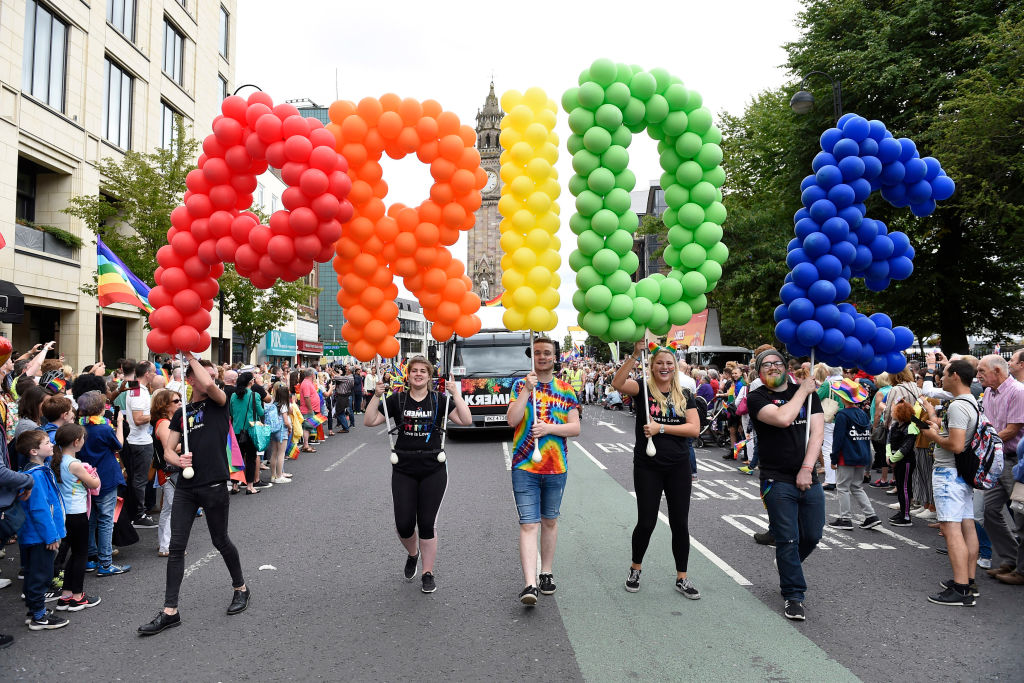
British lawmakers have voted to extend same-sex marriage and access to abortions in Northern Ireland in a move that activists are celebrating after decades of campaigning.
On Tuesday, U.K. Members of Parliament backed an amendment requiring the British government to extend same-sex marriage rights to Northern Ireland, by 383 votes in favor and 73 in opposition. Another amendment aiming to extend access to abortion in Northern Ireland was also backed by 332 votes to 99.
Both amendments will take effect if there is still no government in Northern Ireland by October 21 of this year, and are subject to a future executive potentially overturning or amending the law. Northern Ireland has not had a functioning devolved executive, which acts as its legislature and administration, since March 2017. Under the Good Friday agreement, which brought peace to the region, Northern Ireland is governed by a power-sharing executive. Under the terms of the agreement, both sides of the political divide — Unionists and Republicans — hold equal positions in power.
Same-sex marriage came into effect in England, Wales and Scotland in 2014, but as it is a devolved issue, it has remained illegal in Northern Ireland. Votes to legalize equal marriage have consistently been opposed by the Democratic Unionist Party, which is currently the minority party in a deal that keeps the leading Conservative Party in power.
“This is a huge step forward for LGBT equality in the U.K. and a tribute to those who have spent years building momentum and public support for equal marriage in Northern Ireland,” said Paul Twocock, Executive Director of Campaigns and Strategy at U.K. LGBT charity Stonewall, in a statement immediately after the amendment’s announcement. Labour MP Conor McGinn introduced the amendment relating to same-sex marriage, backed by the activist and campaign group Love Equality.
The abortion amendment brought forth by another Labour MP, Stella Creasy. It says that the U.K. government should take measures to apply the United Nations Convention on the Elimination of All Forms of Discrimination against Women (CEDAW). In February 2018, the Office of the U.N. High Commissioner for Human Rights released a report saying that the U.K. was “violating the rights of women in Northern Ireland by unduly restricting their access to abortion,” in direct contradiction of CEDAW.
Women in Northern Ireland have so far been subject to one of the strictest abortion bans in the world, and terminating a pregnancy can result in life imprisonment. It is the only place in the U.K. where women are denied an abortion in almost every circumstance. According to the U.K.’s Family Planning Associated, In 2016 and 2017, only 13 abortions were performed in Northern Irish hospitals, compared to at least 861 women and girls from Northern Ireland who travelled to England and Wales for an abortion in 2017.
More Must-Reads from TIME
- Inside Elon Musk’s War on Washington
- Meet the 2025 Women of the Year
- The Harsh Truth About Disability Inclusion
- Why Do More Young Adults Have Cancer?
- Colman Domingo Leads With Radical Love
- How to Get Better at Doing Things Alone
- Cecily Strong on Goober the Clown
- Column: The Rise of America’s Broligarchy
Contact us at letters@time.com